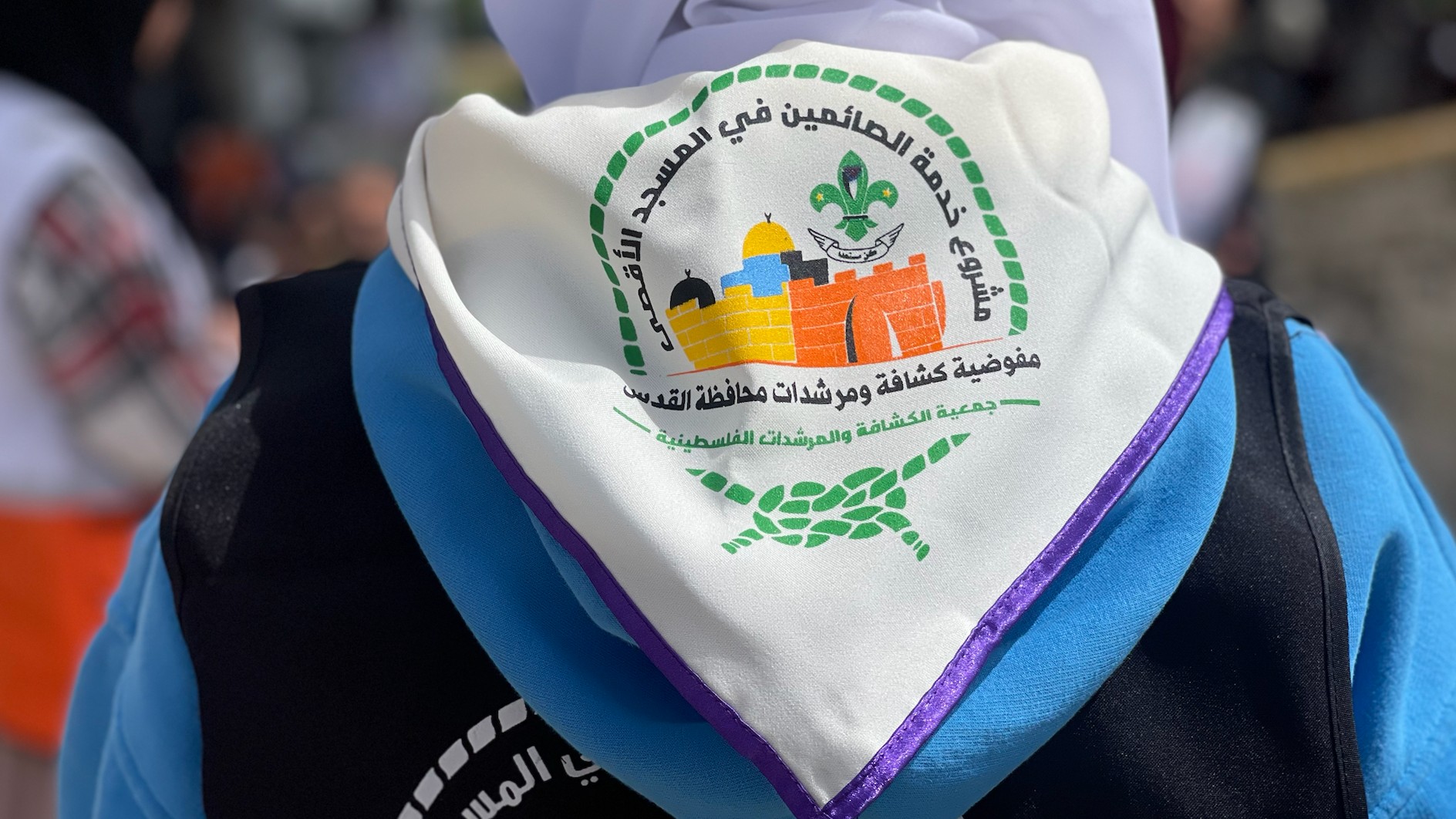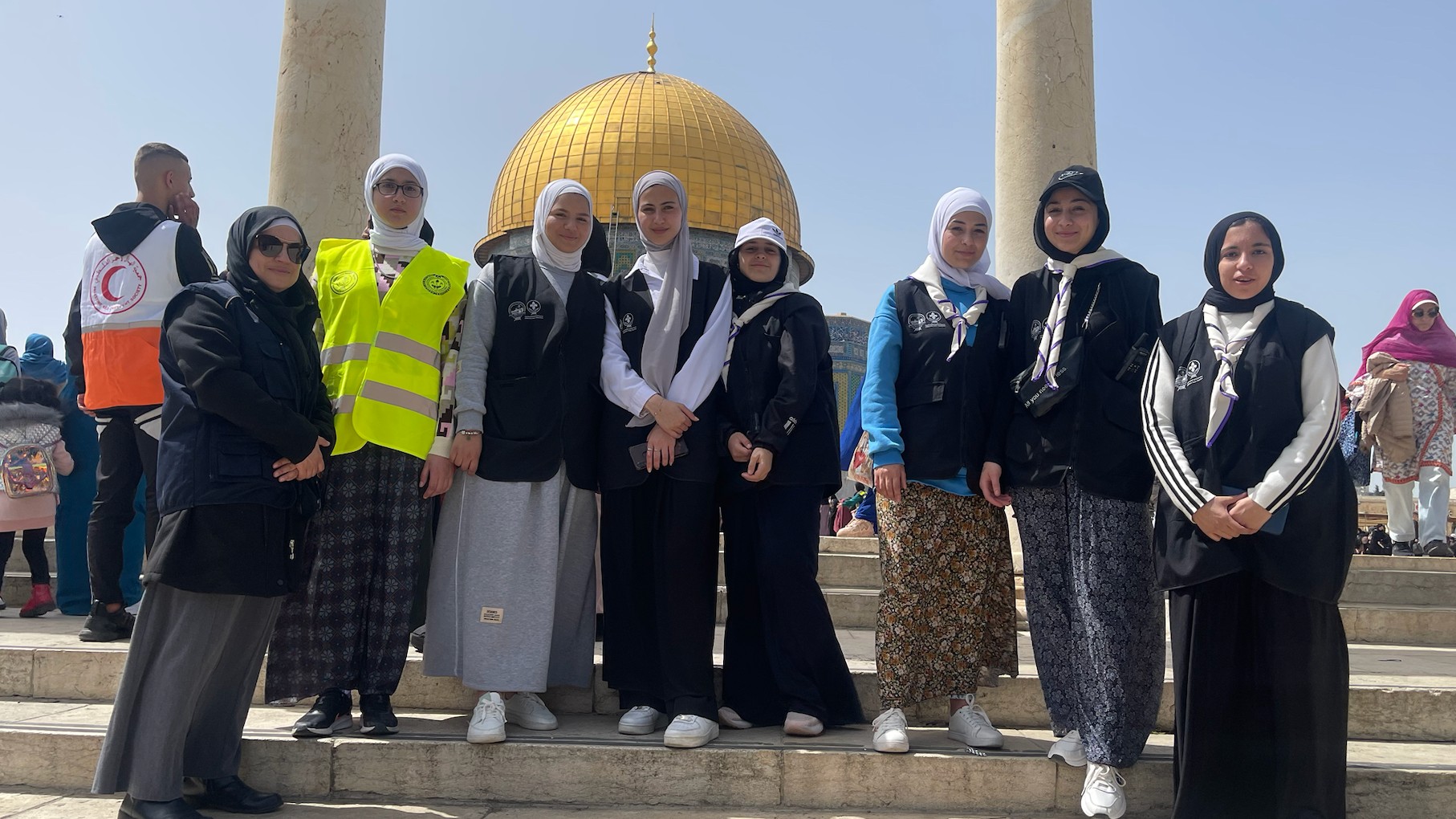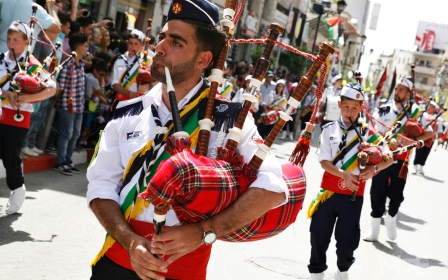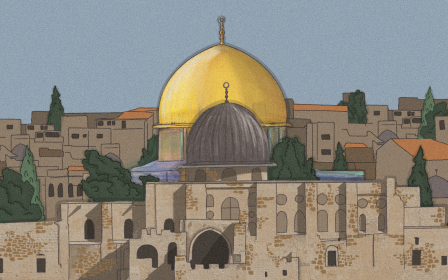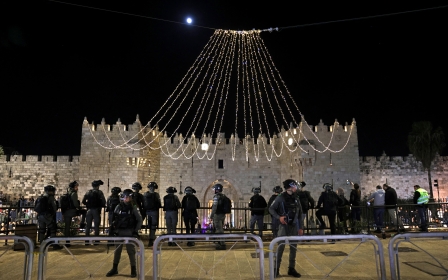A sense of duty: Palestinian scouts on their role protecting Al-Aqsa Mosque
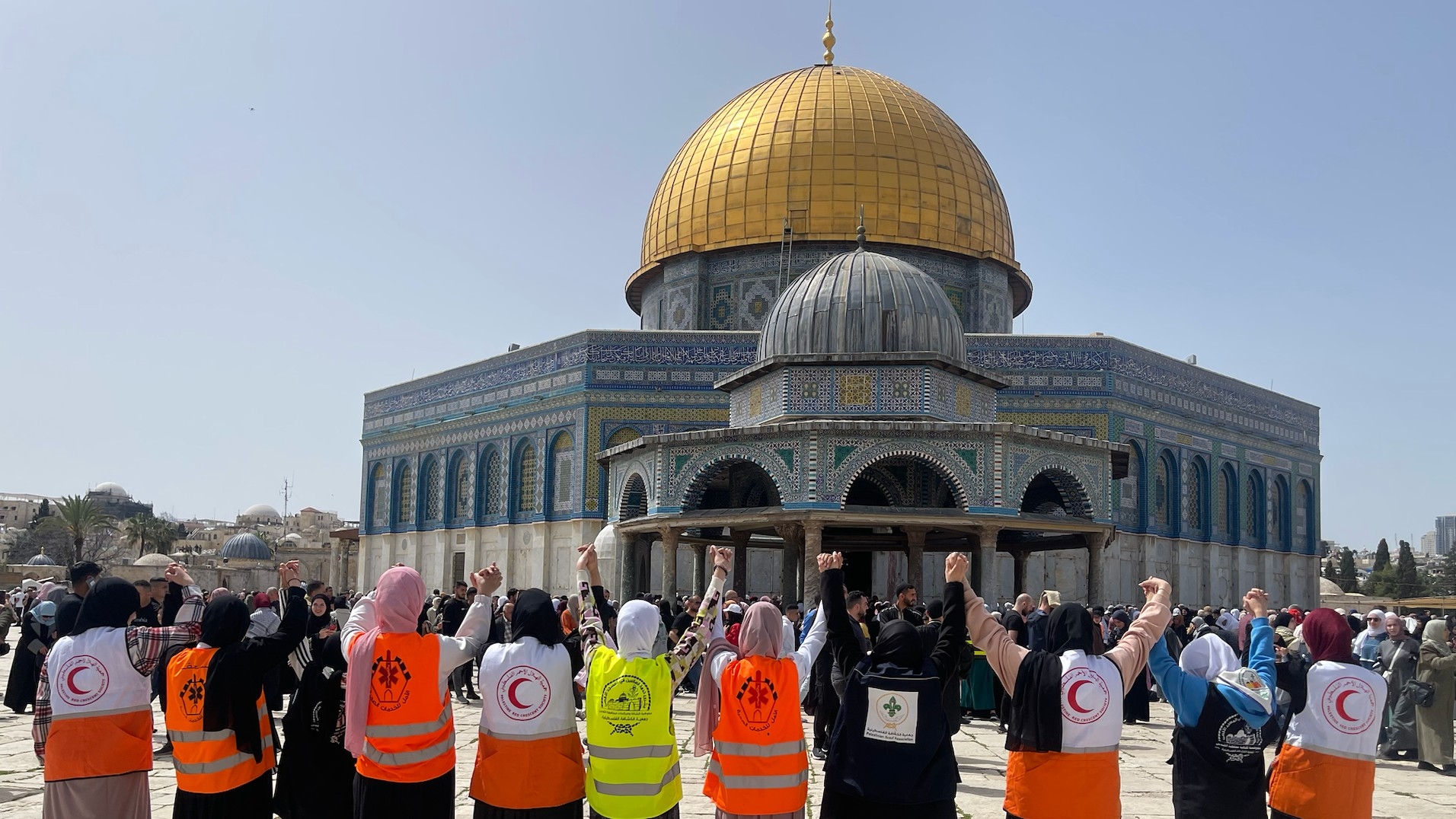
Those Palestinians lucky enough to attend Friday prayers at Al-Aqsa Mosque during Ramadan will notice a curious sight: hundreds of scouts distinguished by their uniform black vests and neckerchiefs weaving through the crowds.
Tasked with helping worshippers, the young Palestinians will assist those who are lost, retrieve lost personal possessions, and shepherd crowds safely through the narrow entrance points of the holy site.
They also serve as the eyes and ears on the ground for the administrators of the 35-acre complex, the Islamic waqf (endowment); warning of potential trouble.
“The entrances to al-Aqsa are fairly small and can’t fit thousands of people through them at a time, so we make sure to manage the crowds going through them so there are no stampedes,” says Ayman Mathar, head of the training committee for the Palestinian scouts.
When situations do arise, it is the scouts, working closely with the Palestinian Red Crescent, who clear paths for ambulances and medical teams to be able to do their job.
New MEE newsletter: Jerusalem Dispatch
Sign up to get the latest insights and analysis on Israel-Palestine, alongside Turkey Unpacked and other MEE newsletters
“Our goal is to allow people to pray comfortably, especially for tourists and people from the West Bank, as it’s their first time in Jerusalem,” Mohammed Jamil Sawalmeh, the deputy president of the Palestinian Scouts, tells Middle East Eye.
Sawalmeh's scouts are crucial to the smooth running of Al-Aqsa Mosque, not only making sure that the risk of accidents is mitigated amongst crowds of worshippers, which can get as large as 100,000 people, but also leading people to safety in the event of attacks by Israeli forces.
Stationed at a small base close to the Qibli mosque, there are around 800 scouts operating at the holy site, who disperse across the area after taking their orders.
A sense of duty
Made up of both Christians and Muslims, scouts are usually involved in stewarding religious events for their respective communities.
Besides helping during Ramadan and Islamic celebrations, the scouts are also on hand to help during Easter parades, as well as assisting during Christmas celebrations.
In addition to their work at Al-Aqsa mosque, the scouts are involved in activities typical of their comrades outside of Palestine, taking part in various humanitarian and social efforts, including blood donation drives and distributing food.
During Ramadan evenings, scouts patrol the Al-Aqsa area, giving out dates and water to families who are about to break their fast. They also provide hot meals for those who are less fortunate.
Outside of Jerusalem, the same efforts take place in local communities.
Mawadda, an 18-year-old Scout, says she has been part of the organisation for around three and a half years. “I’ve... learnt a lot and been able to help a lot of people,” she says.
Many scouts see it as their duty as Palestinians to maintain the security and sanctity of Al-Aqsa.
“We gather in the mornings and discuss where we will all be stationed and who to report to," says Mohammed Abu Sneineh, who manages public relations for the scouts.
“We have people stationed everywhere from the stairs, to the gates, around the Dome of the Rock, next to the Qibli mosque, and this also helps us stop the occupation forces from storming Al-Aqsa,” he adds.
According to Abu Sneineh, a key goal of the scouts is to equip young people with personal skills that enable them to become good citizens who help others in their community.
Al-Aqsa is the third holiest site in Islam and attracts Muslim visitors from around the world and is also one of the most recognisable symbols of the Palestinian people. For scouts, being able to serve worshippers at the site carries with it a sense of civic and religious duty.
“Al-Aqsa is a really special place for all of us. No matter how many times I come, it’s always like my first time seeing it,” says Areej Ayoub Farah, a senior scout leader.
“People come here to forget their concerns, get positive energy, and reconnect with their spirituality. This is why we want to maintain the peace here and protect the site,” she adds.
Israeli occupation
The scouts have been operating at Al-Aqsa mosque for decades and, like most aspects of Palestinian life, tackling the impact of the Israeli occupation is a major consideration in their work.
“We have to prepare for Ramadan for over four months in order to provide people coming from other cities with permits, which come through the Israeli occupation," says Sawalmeh.
"Over 70 scouts from Hebron who were due to come and help us during Ramadan were sent back, ” he adds.
'We have been helping people throughout history and through difficult times...this is why Palestinian scouts will never die'
- Mohammed Sawalmeh, Palestinian Scouts
Abu Sneineh says that over the years, Israeli forces have heavily hindered their efforts to carry out basic activities.
“We need permission from the Israeli occupation to do everything, for the walkie talkies and to have uniforms. They won’t even let us have our crest on our woggle because it has the Palestinian flag on it,” he tells Middle East Eye.
“Even if we have permits, the occupation forces still make it difficult for us to operate, for both Christian Palestinians and Muslims,” Sawalmeh adds.
Due to Israeli restrictions on Palestinian movement, it's also hard for scouts from different areas of Palestine to be able to meet and train together.
“The only time the scouts really see each other from different cities is when we go abroad,” explains Sawalmeh. He noted that the scouts in Gaza are especially cut off from the rest, due to the ongoing Israeli blockade of the territory.
Despite these obstacles, the scouts remain undeterred and, in keeping with their training, look for solutions to the challenges they face.
“We have a long history, and Palestinian scouts are tied to the movement to free Palestine. It takes the form of peaceful and civil resistance," Sawalmeh says.
"We have been helping people throughout history and through difficult times, such as the 1948 Nakba (catastrophe) and the 1967 war, and this is why Palestinian scouts will never die."
This article is available in French on Middle East Eye French edition.
Middle East Eye delivers independent and unrivalled coverage and analysis of the Middle East, North Africa and beyond. To learn more about republishing this content and the associated fees, please fill out this form. More about MEE can be found here.


